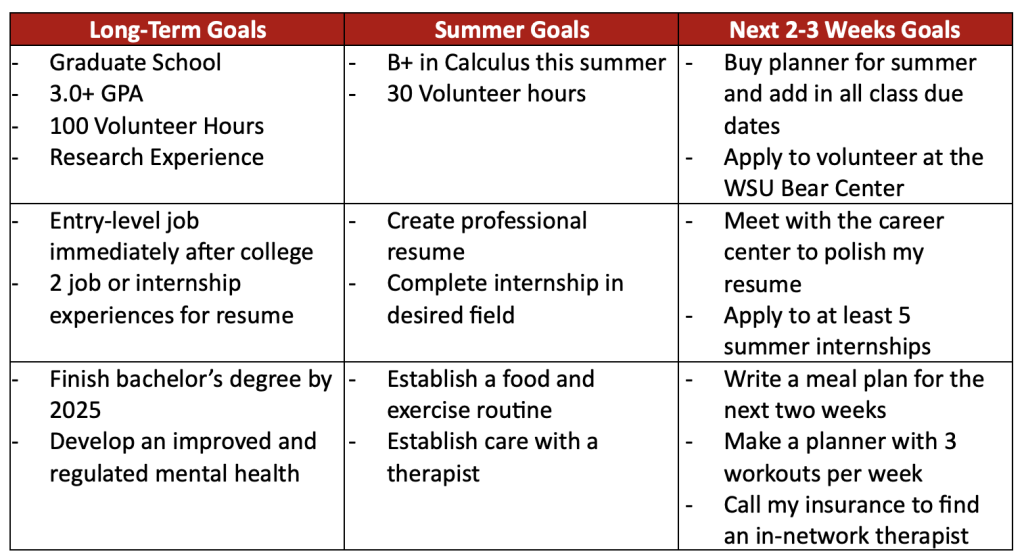We’re almost there, Cougs! We’ve almost made it to summer vacation! I’m already dreaming of sunshine, beaches, and sweet relaxation. Do you have any plans for how to use your summer break? Any internships? Jobs? Summer classes? Let’s take a brief moment to think about long-term goal setting and how to take advantage of your summer break.
The first thing I want you to do is to outline your long-term goals. Why are you at WSU? What are you hoping to achieve after you graduate? For some, this may be a job in their chosen career. For others, this may be graduate school. Once you have this in mind, I want you to consider what you need to be accomplishing during your undergraduate degree to help you achieve those long-term goals. Do you need a certain GPA? Do you need experience from jobs or internships? Do you need volunteer hours? A portfolio? Pre-requisite classes? All of these requirements are part of your long-term goals.
The second thing I want you to do is to look at the list you made in the previous step and consider what aspects of that list you should prioritize this summer. Some people may need to take summer classes to complete pre-requisite classes or boost their GPA. Others may need to get involved with an internship or volunteer hours to bolster their resumes. Others may simply need to take a mental health break so they can come back strong next semester. Whatever you decide is best for you, this is your summer goal.
Lastly, I want you to consider what you need to do over the next 2-3 weeks to ensure you’re on track to meet both your summer and long-term goals. If you’re taking summer classes, what do you need to be doing to ensure your success in those courses? If you need jobs, internships, or volunteer hours, do you already have these arranged or do you need to find them? Do you have an up-to-date resume? If you’re taking time off for your mental health, what should you be doing this summer to ensure you find healing? Do you need to find a doctor or a psychologist, make a fitness routine or meal plan, or find a therapeutic activity like journaling?
Your short-term goals should directly correlate to your long-term goals. This working-backward goal-setting method ensures that what you do today helps you get to where you want to be in the long run, and it can be used at any time in your life – not just for summer planning! I’ve provided some examples of backward goal-setting below for your convenience. Good luck on your finals, Cougs, and I hope you have an incredible summer break!


